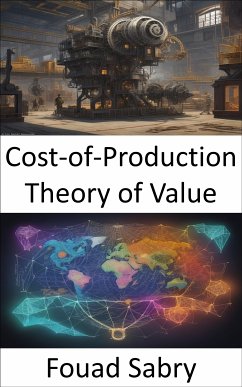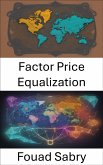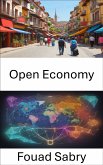What is Cost-of-Production Theory of Value
The cost-of-production theory of value is a theory that is used in economics. This theory states that the price of an item or condition is decided by the total amount of the resources that were taken into consideration during its manufacture. Depending on the circumstances, the cost may include any of the production and taxes variables.
How you will benefit
(I) Insights, and validations about the following topics:
Chapter 1: Cost-of-production theory of value
Chapter 2: David Ricardo
Chapter 3: Labor theory of value
Chapter 4: Supply and demand
Chapter 5: Piero Sraffa
Chapter 6: Comparative advantage
Chapter 7: Price
Chapter 8: Transformation problem
Chapter 9: Marginalism
Chapter 10: Classical economics
Chapter 11: Subjective theory of value
Chapter 12: Exchange value
Chapter 13: Theory of value (economics)
Chapter 14: Law of value
Chapter 15: Prices of production
Chapter 16: Value (economics)
Chapter 17: Ricardian socialism
Chapter 18: Criticisms of the labour theory of value
Chapter 19: Perspectives on capitalism by school of thought
Chapter 20: International trade theory
Chapter 21: Cambridge capital controversy
(II) Answering the public top questions about cost-of-production theory of value.
(III) Real world examples for the usage of cost-of-production theory of value in many fields.
Who this book is for
Professionals, undergraduate and graduate students, enthusiasts, hobbyists, and those who want to go beyond basic knowledge or information for any kind of cost-of-production theory of value.
The cost-of-production theory of value is a theory that is used in economics. This theory states that the price of an item or condition is decided by the total amount of the resources that were taken into consideration during its manufacture. Depending on the circumstances, the cost may include any of the production and taxes variables.
How you will benefit
(I) Insights, and validations about the following topics:
Chapter 1: Cost-of-production theory of value
Chapter 2: David Ricardo
Chapter 3: Labor theory of value
Chapter 4: Supply and demand
Chapter 5: Piero Sraffa
Chapter 6: Comparative advantage
Chapter 7: Price
Chapter 8: Transformation problem
Chapter 9: Marginalism
Chapter 10: Classical economics
Chapter 11: Subjective theory of value
Chapter 12: Exchange value
Chapter 13: Theory of value (economics)
Chapter 14: Law of value
Chapter 15: Prices of production
Chapter 16: Value (economics)
Chapter 17: Ricardian socialism
Chapter 18: Criticisms of the labour theory of value
Chapter 19: Perspectives on capitalism by school of thought
Chapter 20: International trade theory
Chapter 21: Cambridge capital controversy
(II) Answering the public top questions about cost-of-production theory of value.
(III) Real world examples for the usage of cost-of-production theory of value in many fields.
Who this book is for
Professionals, undergraduate and graduate students, enthusiasts, hobbyists, and those who want to go beyond basic knowledge or information for any kind of cost-of-production theory of value.








